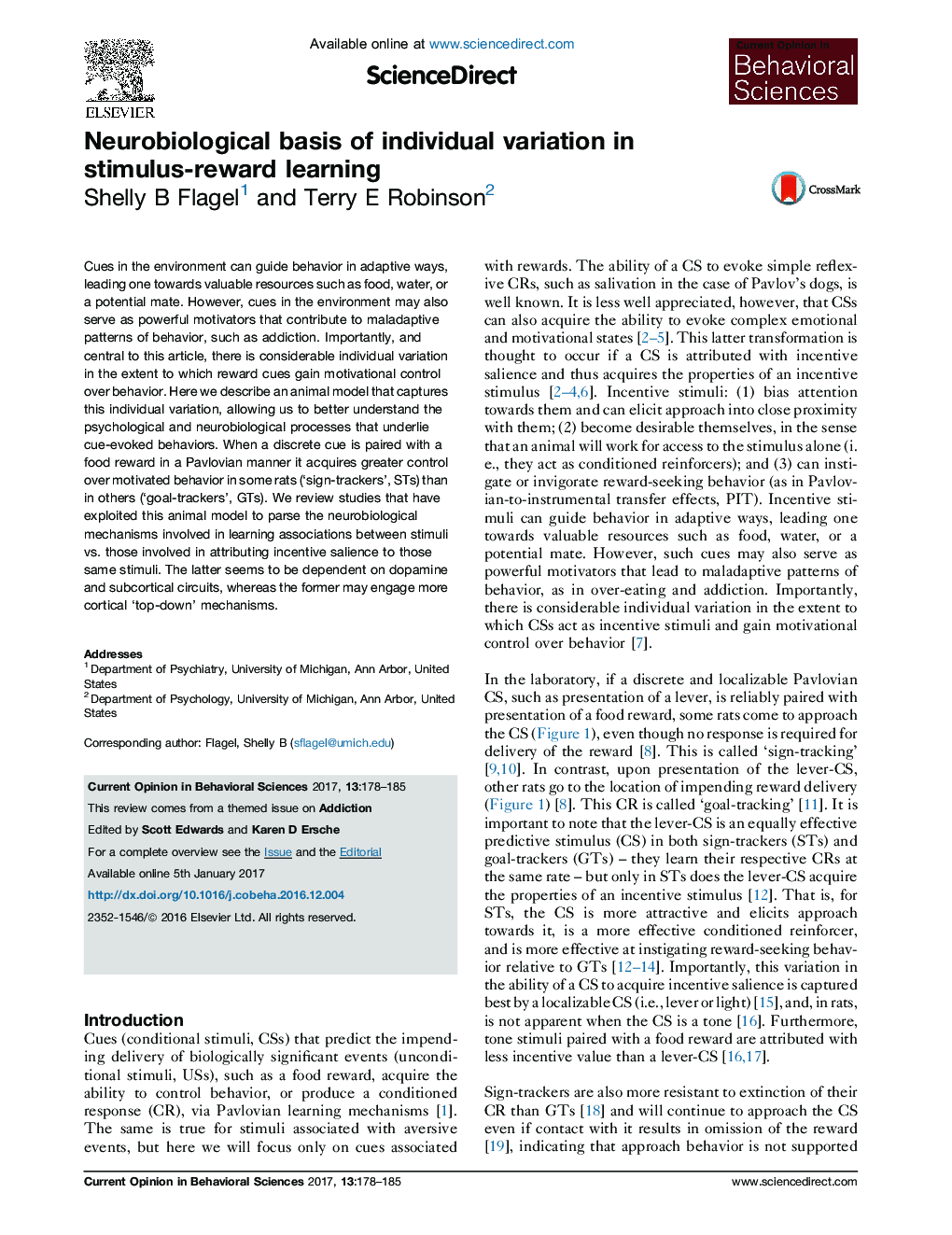| کد مقاله | کد نشریه | سال انتشار | مقاله انگلیسی | نسخه تمام متن |
|---|---|---|---|---|
| 6260340 | 1613077 | 2017 | 8 صفحه PDF | دانلود رایگان |
- There is considerable individual variation in conditioned responses to reward cues.
- Cues can evoke simple conditioned responses and/or complex motivational states.
- When a reward cue becomes an incentive stimulus it can elicit maladaptive behavior.
- We can exploit variation to elucidate the neurobiology of cue-elicited behavior.
- Distinct neural circuits are engaged when a cue has incentive vs. predictive value.
Cues in the environment can guide behavior in adaptive ways, leading one towards valuable resources such as food, water, or a potential mate. However, cues in the environment may also serve as powerful motivators that contribute to maladaptive patterns of behavior, such as addiction. Importantly, and central to this article, there is considerable individual variation in the extent to which reward cues gain motivational control over behavior. Here we describe an animal model that captures this individual variation, allowing us to better understand the psychological and neurobiological processes that underlie cue-evoked behaviors. When a discrete cue is paired with a food reward in a Pavlovian manner it acquires greater control over motivated behavior in some rats ('sign-trackers', STs) than in others ('goal-trackers', GTs). We review studies that have exploited this animal model to parse the neurobiological mechanisms involved in learning associations between stimuli vs. those involved in attributing incentive salience to those same stimuli. The latter seems to be dependent on dopamine and subcortical circuits, whereas the former may engage more cortical 'top-down' mechanisms.
Journal: Current Opinion in Behavioral Sciences - Volume 13, February 2017, Pages 178-185
